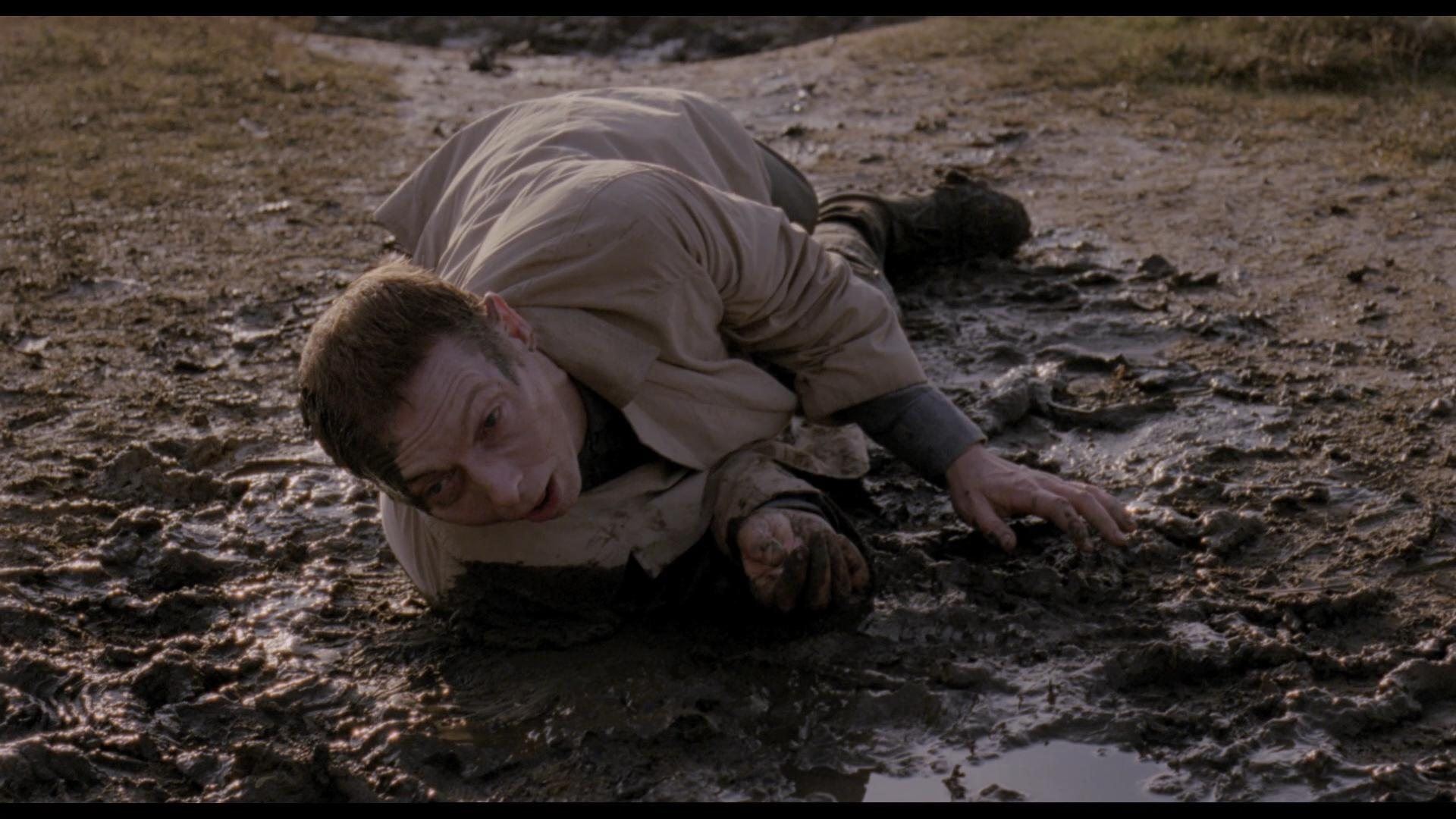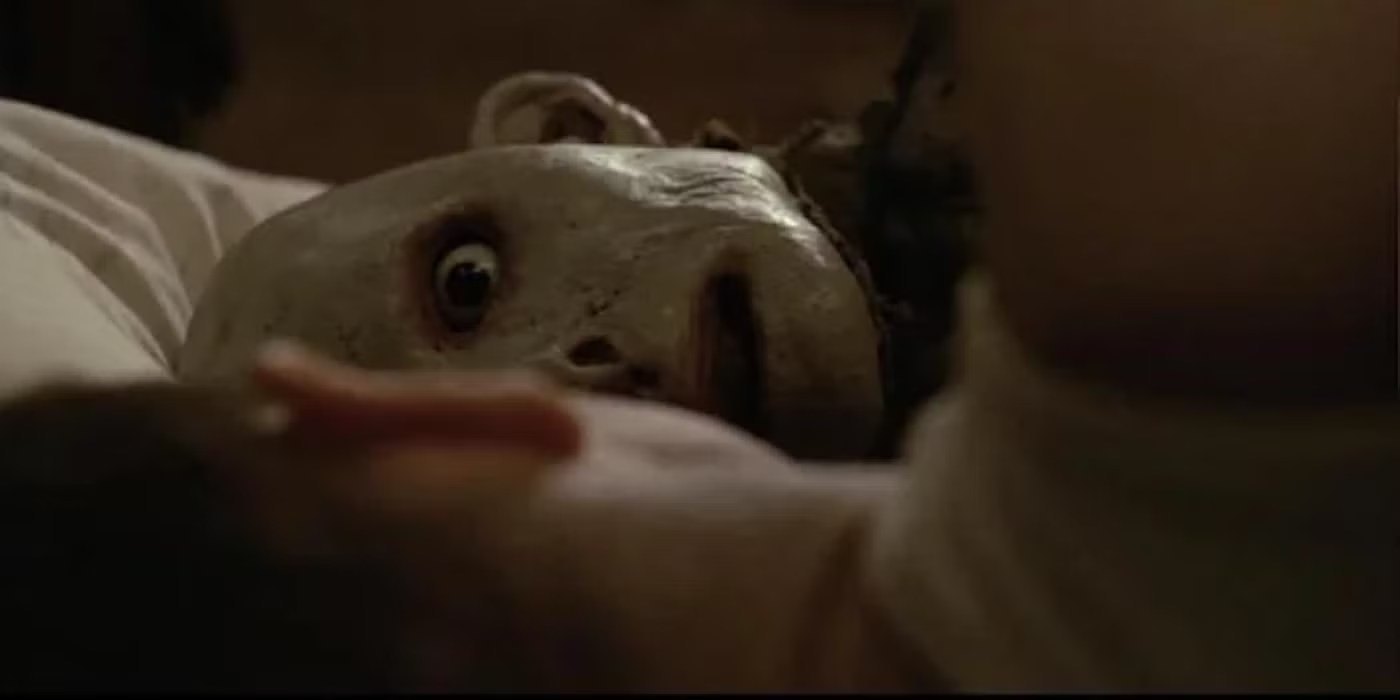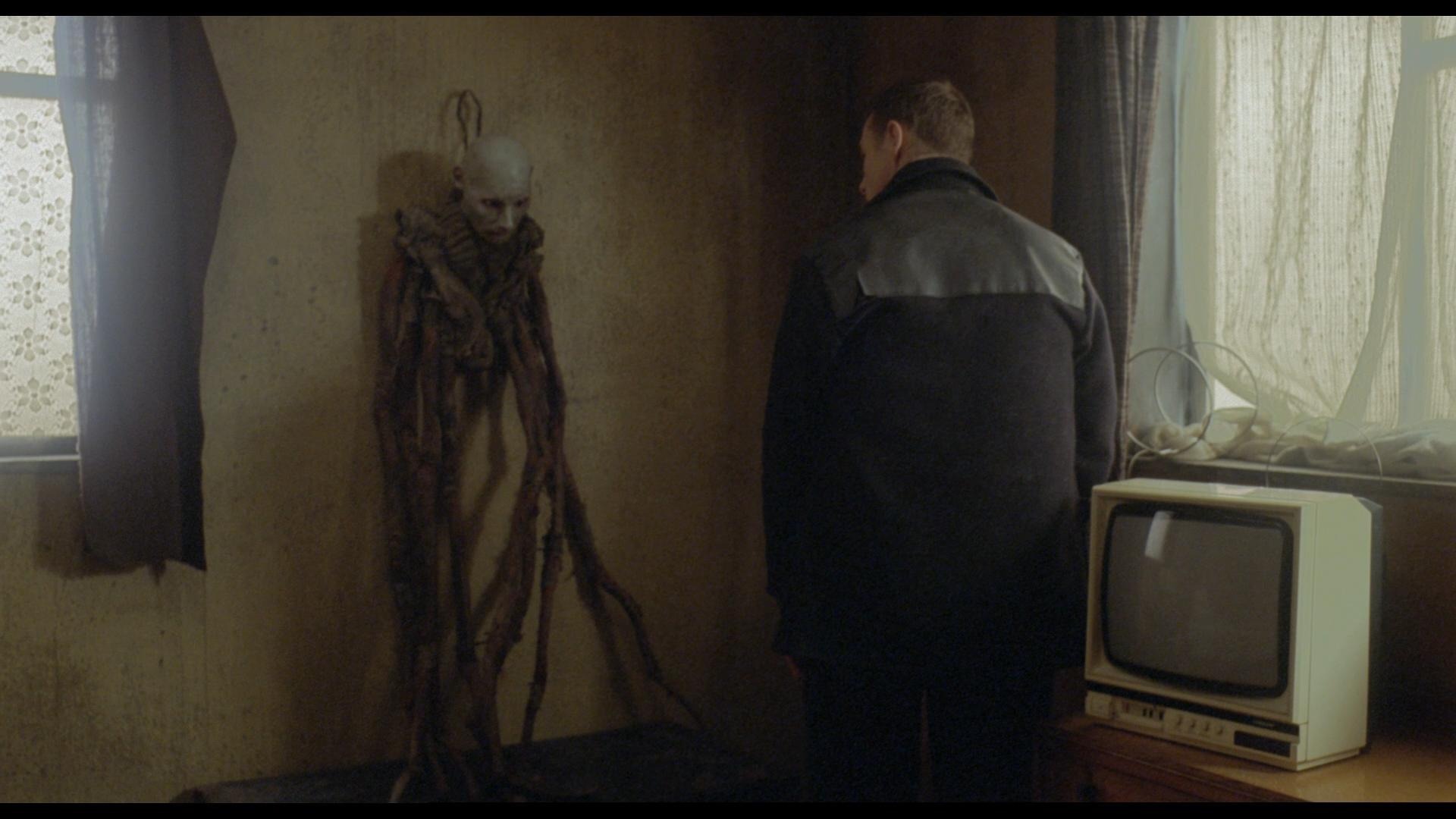Possum 2018

Possum (2018) is a British psychological horror film written and directed by Matthew Holness in his feature film debut. Known for its chilling atmosphere and psychological depth, the film follows the unraveling mind of its protagonist, Philip (Sean Harris), as he grapples with the trauma of his past. The film features a minimal yet effective cast, with standout performances from Sean Harris and Alun Armstrong. Possum blends psychological horror with existential dread, creating an unsettling experience that lingers long after the film ends.
The plot of Possum centers around Philip, a puppeteer who returns to his childhood home, carrying with him a sinister puppet that appears to have a life of its own. As Philip confronts his memories and the haunting presence of his former mentor, Maurice (Alun Armstrong), he is forced to face the dark secrets of his past. The puppet, which appears grotesque and terrifying, symbolizes the repressed trauma that Philip struggles to escape. As the story unfolds, it becomes clear that Philip’s descent into madness is tied to unresolved guilt, shame, and fear from his childhood.
A key theme of Possum is the exploration of guilt and psychological trauma. The film presents Philip as a man tortured by his past, unable to escape the memories that have shaped him into who he is. The puppet, with its unsettling and grotesque appearance, becomes a physical manifestation of his inner demons. The film portrays how trauma can distort one’s perception of reality, leading to a disorienting and surreal experience. The constant tension between what is real and what is imagined keeps the audience on edge, reflecting the confusion and instability that Philip feels.
The performances in Possum are hauntingly effective. Sean Harris delivers a powerful portrayal of a man consumed by guilt and fear. His subtle yet intense performance captures the fragility of Philip’s mental state, making him both sympathetic and unsettling. Alun Armstrong, as Maurice, adds a sense of menace and authority to his role, playing a figure from Philip’s past who represents the source of much of his trauma. The dynamic between these two characters is crucial to the film, as it drives the emotional and psychological conflict at its core.

Visually, Possum is a masterclass in atmosphere. The cinematography uses shadowy, claustrophobic spaces to enhance the feeling of dread and unease. The decaying, isolated environments mirror Philip’s deteriorating mental state. The film’s muted color palette and dim lighting further contribute to the oppressive atmosphere, making every scene feel heavy with tension. The puppet itself is a grotesque creation, designed to evoke disgust and fear, and its presence throughout the film intensifies the feeling of being trapped in a nightmare.

The pacing of Possum is deliberate and slow, allowing the tension to build gradually as the film progresses. This pacing may feel unsettling to some viewers, but it effectively mirrors the slow unraveling of Philip’s mind. The film’s ambiguity leaves much to interpretation, forcing the audience to piece together the fractured narrative as they attempt to understand the true nature of Philip’s torment. This open-endedness adds to the psychological horror, as viewers are left questioning what is real and what is a manifestation of Philip’s broken psyche.

In conclusion, Possum is a deeply unsettling psychological horror film that excels in its exploration of trauma, guilt, and the horrors of the mind. Matthew Holness’s direction and writing create an atmosphere of dread that permeates the entire film, while the strong performances from Sean Harris and Alun Armstrong add depth to the characters’ psychological struggles. With its haunting visuals, slow-burn pacing, and eerie themes, Possum is a memorable and thought-provoking film that will leave a lasting impression on anyone brave enough to face its chilling narrative.











